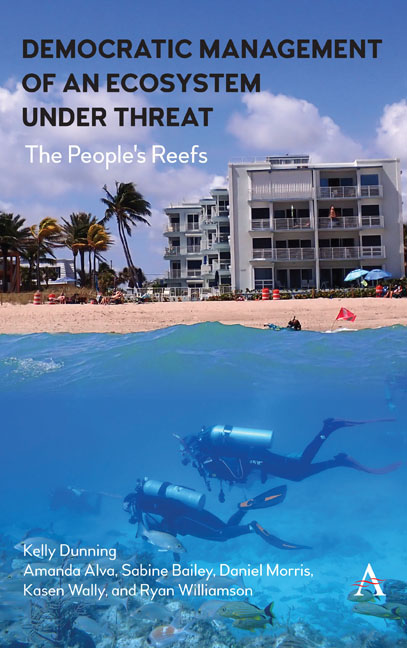Book contents
- Frontmatter
- Contents
- Miscellaneous Frontmatter
- Part 1 The Climate Change Challenge to Coral Reefs That Will Require Conservation Theory And Practice to Evolve
- Part 2 Case Studies
- Part 3 Summary and Conclusions
- Appendix Chapter 5
- Appendix Chapter 6
- Appendix Chapter 7
- Appendix Chapter 8
- Appendix Chapter 9
- Index
Appendix Chapter 8
Published online by Cambridge University Press: 28 February 2024
- Frontmatter
- Contents
- Miscellaneous Frontmatter
- Part 1 The Climate Change Challenge to Coral Reefs That Will Require Conservation Theory And Practice to Evolve
- Part 2 Case Studies
- Part 3 Summary and Conclusions
- Appendix Chapter 5
- Appendix Chapter 6
- Appendix Chapter 7
- Appendix Chapter 8
- Appendix Chapter 9
- Index
Summary
Theoretical Framework
To best conceptualize the importance of cultural ecosystem services, and the values they hold for the people who rely on these ecosystems, we must clearly define some of the key terms outlined in our theoretical framework, derived from Fish et al., 2016. In this framework the fundamental building block for understanding how cultural ecosystem services and the benefits they provide work in tandem. It begins with the biophysical domain in which humans interact with their environment. The biophysical domain is defined as nature's condition and ecological functioning (independent of interactions with people/benefits/services). Stated simply, the biophysical domain provides the material components of the environmental spaces where these interactions take place. Additionally, the biophysical domain provides opportunities for the various cultural practices enabled by environmental spaces. The environmental spaces and cultural practices (described in further detail below) both work to shape the biophysical domain. In the Cayman Islands, the reefs in Georgetown Harbour being threatened or lost by the port expansion project are the biophysical domain and the environmental spaces being examined in this chapter.
Environmental spaces are defined as the physical locations or sites in which humans and the societies and cultures they populate, interact within the eco-system. This can include meadows, streams, mountain tops, and in the context of the Cayman Islands, the beaches and reefs surrounding the islands. These spaces provide a context for the linking of the biophysical domain with cultural practices and cultural ecosystem benefits, as these spaces shape the biophysical domain and enable cultural practices and benefits.
In the case of the Cayman Islands, a majority of the environmental spaces which provide these benefits are reefs, beaches, lagoons and other marine environments surrounding the islands. Popular locations around the three islands (Grand Cayman, Little Cayman and Cayman Brac) include Eden Rock, Devil's Grotto, Macabuca, Cheeseburger Reef, Seven Mile Beach and the USS Kittiwake.
Methods
This study was distributed via an online platform (Google Forms) through the Cayman Islands National Trust which posted the link to the survey on their social media on November 1, 2019. The survey had n = 175 responses, which is a very small portion of the Caymanian population, but with information saturation on topics such as the form of reef access that Caymanian's prefer.
- Type
- Chapter
- Information
- Democratic Management of an Ecosystem Under ThreatThe People's Reefs, pp. 215 - 216Publisher: Anthem PressPrint publication year: 2023



